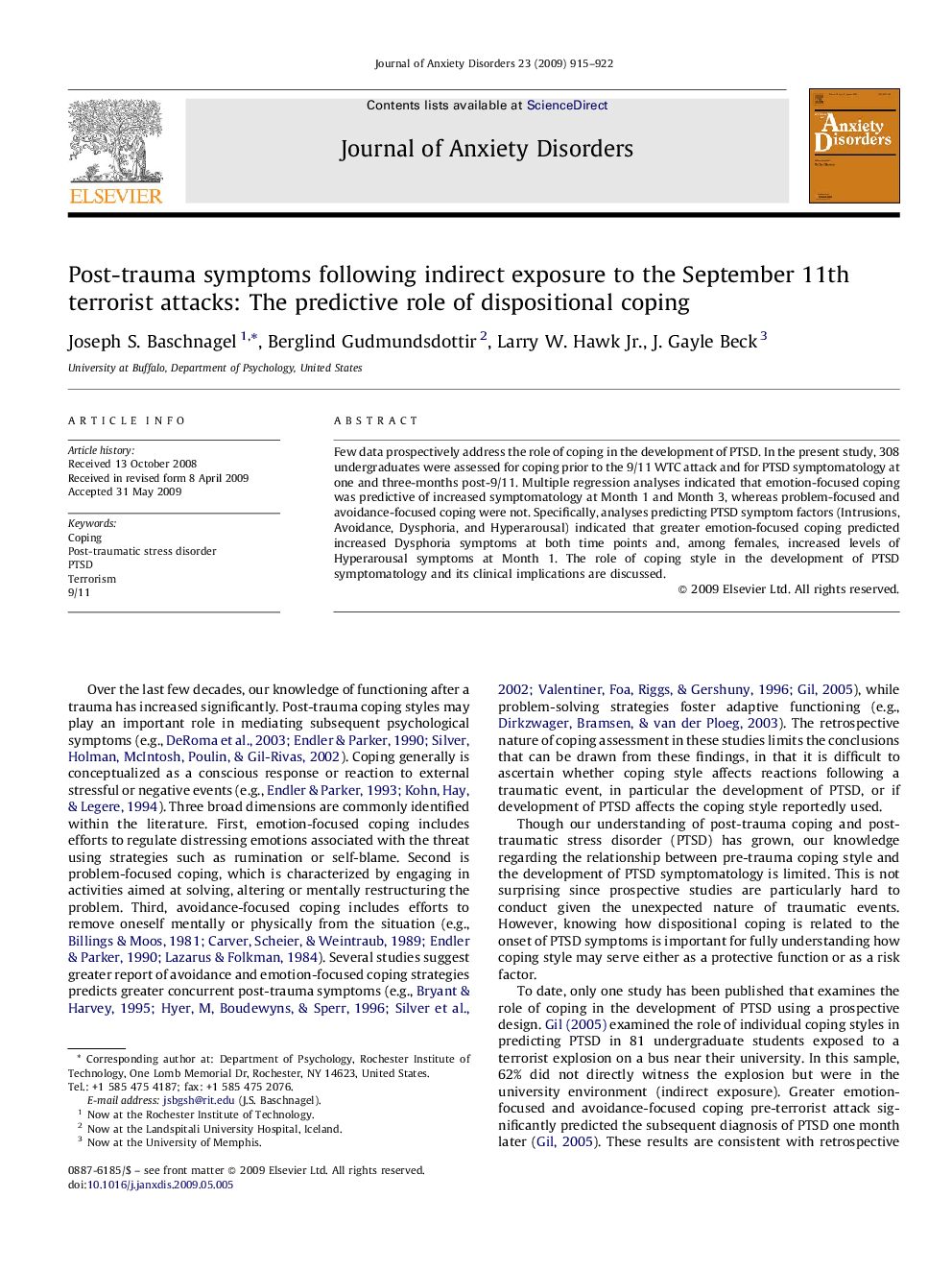| Article ID | Journal | Published Year | Pages | File Type |
|---|---|---|---|---|
| 909970 | Journal of Anxiety Disorders | 2009 | 8 Pages |
Few data prospectively address the role of coping in the development of PTSD. In the present study, 308 undergraduates were assessed for coping prior to the 9/11 WTC attack and for PTSD symptomatology at one and three-months post-9/11. Multiple regression analyses indicated that emotion-focused coping was predictive of increased symptomatology at Month 1 and Month 3, whereas problem-focused and avoidance-focused coping were not. Specifically, analyses predicting PTSD symptom factors (Intrusions, Avoidance, Dysphoria, and Hyperarousal) indicated that greater emotion-focused coping predicted increased Dysphoria symptoms at both time points and, among females, increased levels of Hyperarousal symptoms at Month 1. The role of coping style in the development of PTSD symptomatology and its clinical implications are discussed.
